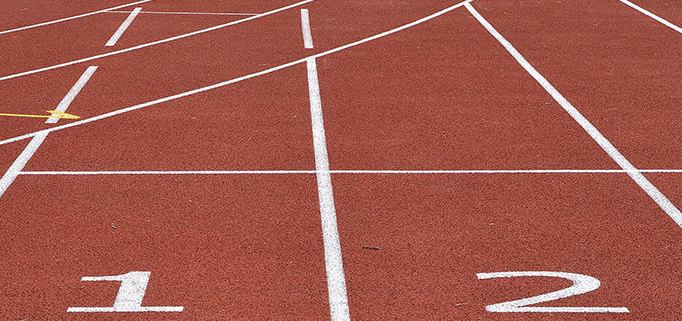Catholic School Athletics Must Be Truthful
Gender ideology has created huge inequities in the world of sports, with men competing on women’s teams and sometimes taking top honors away from outstanding female athletes.
Add to this many other controversies in sports, including players refusing to respect the national anthem, cheating and betting scandals, sexual abuse and harassment, and more.
Catholics are forced to ask some important questions: Is there a Catholic approach to athletics, especially in Catholic schools and colleges? Should we simply embrace the norms of secular schools and athletic associations in order to have opportunities to compete against them?
The Church has not shied away from these questions, but rather has been outspoken about the role of sports. Pope St. John Paul II especially focused on athletics in many homilies, messages and speeches.
“Sport… is an activity that involves more than the movement of the body; it demands the use of intelligence and the disciplining of the will,” he told athletes in 1987.
“It reveals, in other words, the wonderful structure of the human person created by God as spiritual being, a unity of body and spirit,” he said.
What a wonderful message! But sadly today, “body” and “spirit” are being divided in sport because of gender ideology.
Some girls have had enough of it, and Alliance Defending Freedom is representing them in a lawsuit against a Connecticut athletic conference that allows biological boys to defeat biological girls in high school track competitions. Catholic schools and colleges, too, should stand their ground and uphold truth.
“Given the incompatibility of gender ideology and a Catholic worldview, Catholic educational institutions cannot simply look the other way or surrender their vision of man and reality. Too much is at stake,” writes Dr. Dan Guernsey, senior fellow of The Cardinal Newman Society, in a draft set of standards for Catholic school and college athletics.
The standards are being circulated among experts in Catholic education, sports and theology to find common ground and help educators avoid the errors of their secular counterparts.
Athletics can be important to student development, explains Guernsey. “It can affect their understanding of themselves and their relationship with God in profound ways.”
According to the Vatican, the mission of Catholic education is about the “integral formation of the human person.” Athletics can support this mission by helping students “develop virtue and harmonize mind, body and will,” Guernsey writes.
But respecting the sex of athletes, he argues, is necessary to ensure player safety, fair play and social justice. It’s crucial for Catholic schools and colleges to develop clear position statements and policies to ensure that “athletics is not coopted to work against the mission of Catholic education.”
Ultimately, sports at Catholic schools and colleges should bear witness to the Truth. And in a culture that’s increasingly relativistic, Catholic athletics must go against the tide.
This article first appeared at The National Catholic Register.

